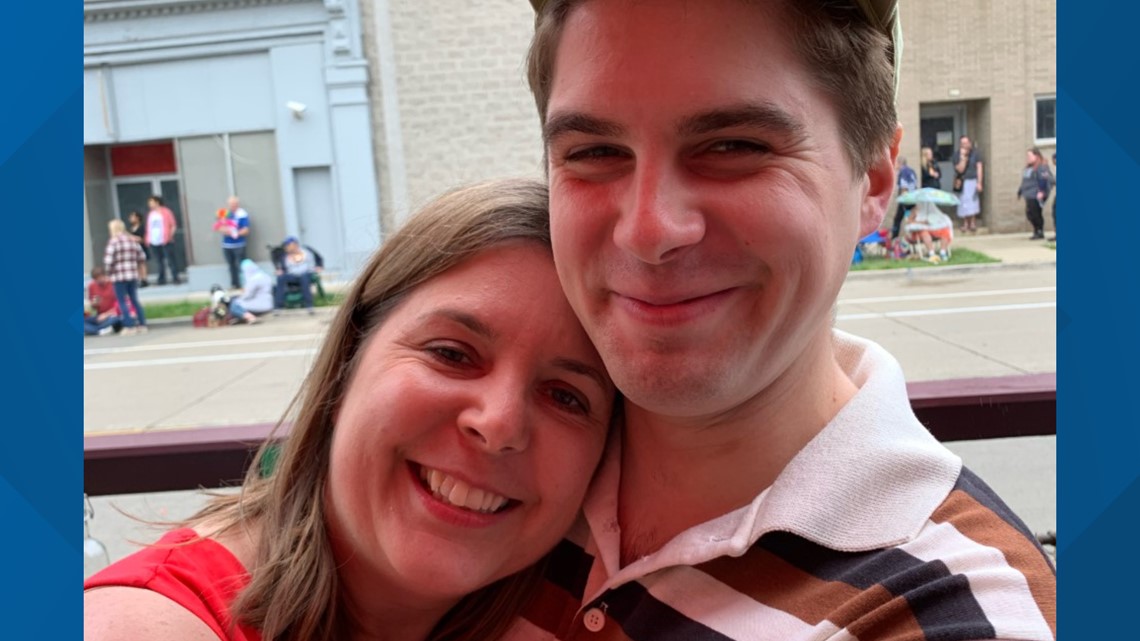INDIANAPOLIS — Parents cosign student loans to help their children borrow money for college. One mom was told she was responsible for her son's debt after he died unexpectedly at a young age.
Lynda Swearingen's son, Zachary, was born on her mother's 50th birthday.
"It was a good day," Lynda softly said.
Zachary was one of four boys, and the artist in the family.
"From a young age, [he was] really talented. But I didn't really know how talented until so many years later," Lynda said.
After high school, Zachary pursued photography at Milwaukee Institute of Art and Design.
Lynda, a nurse and lactation consultant, did her best to help pay.
"The conversations were, 'You guys, I can't afford to pay tuition for you, I can't. But I will cosign your student loans.'"
So, she cosigned the loans – not giving it a second thought until after the worst day of her life.
In January 2020, Zach died after a bad fall at the age of 28.
"Doctor just comes out and he just said 'I'm really sorry. His injuries were just too bad. He just passed about 10 minutes ago,'" Lynda said as she wept. "Grief doesn't end, you know, it just doesn't. [You] just love them so much, and you just you never think anything like that's going to happen."


As Lynda grieved, she got Zachary's affairs in order, which included his student loans.
She said his private loans with Sallie Mae were written off.
Then, she contacted Elements Financial, a consumer-owned credit union, about his other student loan.
While the Indianapolis-based lender agreed to write off the loan interest, they told Lynda she still owes the balance – just under $31,000.
"When we cosign it means if he has trouble paying, I'll help him. Not if he dies, I'll pay the whole thing," she said.
When it comes to student loans, federal loans are forgiven after death. But for private loans, it's a gray area.
A law on the books says, in part, that private loan cosigners should be released after a student's death.
But Elements Financial originally denied Lynda's request for forgiveness for two reasons.
One, the agreement was entered into before the November 2018 law took effect. The second reason, the money borrowed was an open line of credit despite being called a student loan.
The law excludes open lines of credit, even though the paperwork says funds are disbursed directly to the school.
"If someone does come upon a hardship in their life, and they can't pay for their house, or they can't pay for their car, then [the lender] can take the house and they can take the car and the people can find another place to live," Lynda said. "There's nothing tangible to take."
If you're a cosigner on a private student loan entered into before November 2018, take the steps to get it off.
Anna Helhoski with Nerdwallet said to remove your name, you'll need to see if your private lender offers a cosigner release.
"Call your private lender and find out if that's something that's even available to you," Helhoski said.
Helhoski said if the lender does not offer this, there are other options.
"Consider having the primary borrower, most likely your student if you're a parent, check into other lenders that you can refinance with that do offer cosigner release," Helhoski said.
Unlike a home mortgage, there is no cost to refinance student loans. However, your last resort may be a life insurance policy.
As for Lynda, she finally received good news.
After her years of persistence and 13News reaching out, Elements Financial contacted Lynda to let her know that the student loan will be forgiven, and that they are changing their student loan policy pertaining to death moving forward.

